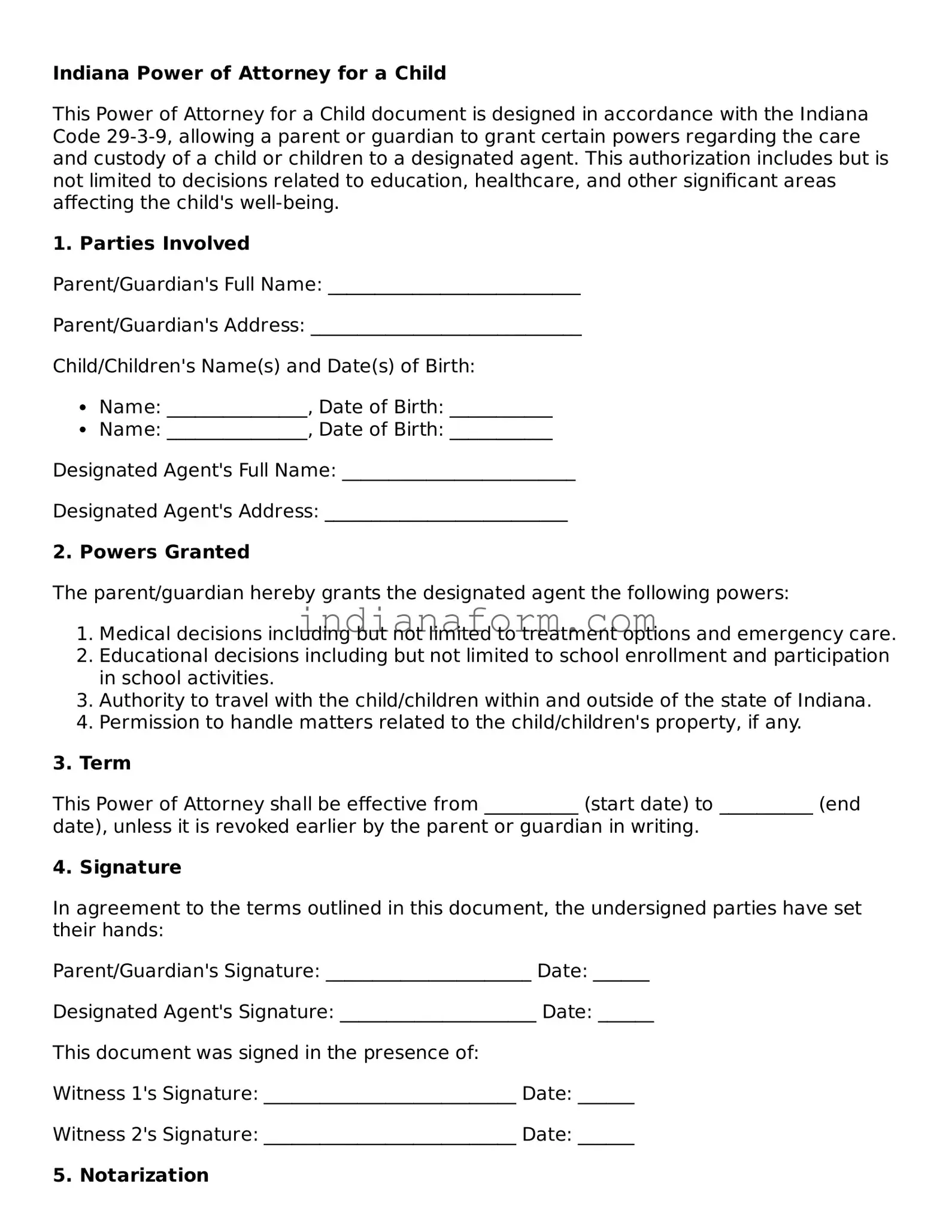Indiana Power of Attorney for a Child Template
The Indiana Power of Attorney for a Child form is a legal document that allows a parent or guardian to grant another individual the authority to make decisions on behalf of their child. This includes decisions related to education, healthcare, and other areas of the child's welfare. It is a temporary arrangement that is often used when the parent or guardian is unable to care for the child due to various reasons such as illness, military deployment, or extended travel.
Fill Out Your Document Online

Indiana Power of Attorney for a Child Template
Fill Out Your Document Online

Fill Out Your Document Online
or
⇓ Power of Attorney for a Child PDF Form
Don’t stop halfway through your form
Edit your Power of Attorney for a Child online and get it downloaded.